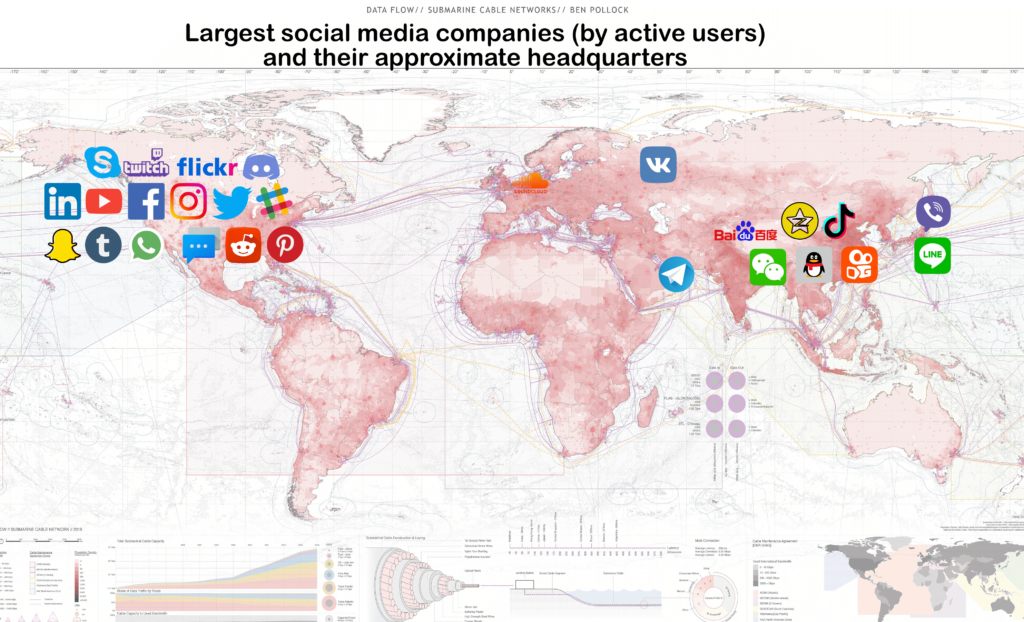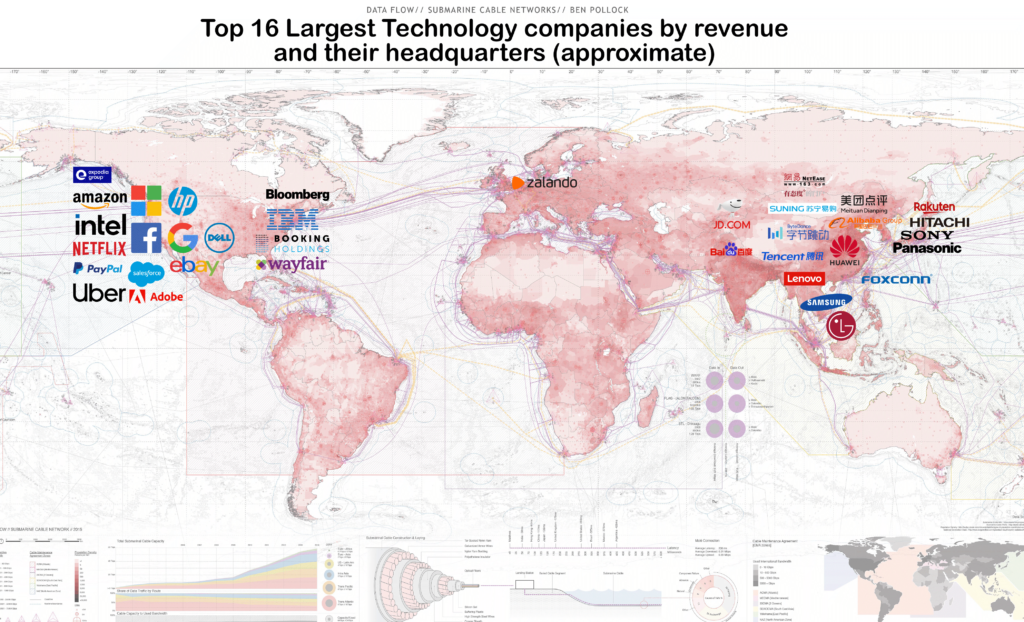The internet has connected the globe and has provided knowledge and opportunity for billions of people over the past 25 years. As the internet becomes ever more available, it is important to look at who the established players already are.
Over the last few decades, internet accessibility has remained exceedingly unequal across the globe. Even within the United States, rural communities often have limited access. Despite this uneven rollout, or perhaps because of it, a limited number of large corporations have come to dominate the virtual landscape. These corporations, like the internet, are not evenly distributed across the globe.

The majority of these technology and internet companies are located in the western United States. However, southeast Asia, particularly China, also hosts a high concentration of large technology and internet companies.
With competition between both centers of trade heating up, perhaps it should surprise no-one that diplomatic relations between these two poles of the internet are under increasing strain. However, what I find most surprising, is how few dominant companies exist outside of these poles. The rest of the world combined claims relatively few large technology firms.

Have the established giants sucked all the oxygen out of the room and made it impossible to compete with them worldwide? Have local regulations made it impossible for technology companies to grow and thrive in other parts of the world? Perhaps the rollout of technology across the globe is still so uneven that local markets don’t exist in other parts of the world, preventing internet companies from getting started in the first place?
There is a question that is more important than any of those concerns. What does the current state mean for the future? Has this early lead become an insurmountable challenge for economic development throughout the rest of the world?
Fortunately, history is long and there is hope. According to Thomas Piketty, the author of Capital in the 21st Century, there is a trend towards technological and economic equalization throughout the world. It could take a century, but we can expect the current technology and internet order to depolarize over the next century.Works Cited:
Piketty, Thomas, 1971-. (2014). Capital in the twenty-first century. Cambridge Massachusetts :The Belknap Press of Harvard University Press,Contributors to Wikimedia projects. (2020, October 09). List of largest Internet companies – Wikipedia. Retrieved from https://en.wikipedia.org/w/index.php?title=List_of_largest_Internet_companies&oldid=982597102Contributors to Wikimedia projects. (2020, October 09). List of largest technology companies by revenue – Wikipedia. Retrieved from https://en.wikipedia.org/w/index.php?title=List_of_largest_technology_companies_by_revenue&oldid=977496539Flaticon. (2020, October 9). Retrieved from https://www.flaticon.com/home (iconography)